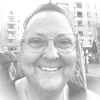|
ESL Forum:
Techniques and methods
in Language Teaching
Games, activities
and teaching ideas
Grammar and
Linguistics
Teaching material
Concerning
worksheets
Concerning
powerpoints
Concerning online
exercises
Make suggestions,
report errors
Ask for help
Message board
|
ESL forum >
Message board > OPEN YOUR BOOKS AT/TO PAGE 23
OPEN YOUR BOOKS AT/TO PAGE 23
|
|

ueslteacher

|
|
Hi Yolanda, I was the first to answer your post on Saturday. And I didn �t feel negative about it, on the contrary, I was interested, as the wrong "open your books on page" was on the tip of my tongue for a long time. And I wasn �t around here long enough to read your previous discussions as I assumed from your words"... we have already said several times..." that there were some. So I was just asking questions and wanted to read a thread about it from before and that was it. Sorry if you read sth negative between the lines which wasn �t my intention at all. I thought the post was useful. Sophia
|
9 Aug 2010
|
|
|

yanogator

|
|
Linda (Zora),
I think your revelation is great, but the current topic seems to be "Open your book on page 23.", stopping there. What you said will definitely clear up some wrong ideas, though.
Bruce |
9 Aug 2010
|
|
|
|
|

anitarobi

|
OK, I am convinced. When I was a student all my teachers and professors used on page the way that they weren �t supposed to - interesting. I never thought it was wrong, but since I �ve always hated using the whole phrase in my lessons, because it �s too classical and as soon as sts hear it, they roll their eyes at the backs of their heads thinking �here we go again - booooooooring books �. I usually had sth else prepared as a challenge and then just told them afterwards to find the topic vocabulary or text in their books, challenging them to actually go through the book and search the page for themselves. This may be why I was never really aware of the incorrectness of the whole phrase. But thanks for clearing that up.
(I usually have problems convincing the younger teachers and my students to use in the picture when they describe it, because literally translated from Croatian it �s on the picture. Or say it in English instead of on English - brrrrrrrr, horrible, but so many people use it, and you �re right - so many teachers are sensitive to being corrected. So you can imagine what a task it is to instill there is/are into their everyday usage, when they would rather say The room has 3 chairs...) |
9 Aug 2010
|
|
|

libertybelle

|
I always say - Open your books to page 3. 
|
9 Aug 2010
|
|
|

Babs1966

|
|
Hello ;)
I think what �s most important is to learn from our mistakes ... British English v/s American English is being tought ... us as teachers must chose to teach either /or but we can stop a while and let our students know about the differences between the both.
Before I started teaching, I didn �t even know there were so many differences.
But in the end what really matters is people understanding one an other and communication.
As a teacher I always learn and always will (until I �m dead I guess) as we can �t never know everything.
I grow up in France, learned British English and lived in the States and practice American English. I teach american English and always tell my students, in British English it might be different!
Sometimes I show them the difference and sometimes not.
Thanks for bringing up this topic which is very interesting.
Best thoughts,
Babs
|
9 Aug 2010
|
|
|

pauguzman

|
thanks a looot for this thread!! this is the way we ALL (students and TEACHERS!!) learnthis is the ESL PRINTABLES I like!!!!  |
9 Aug 2010
|
|
|

GIOVANNI

|
|
Like Libertybell, I also use open your books to page 3. I believe to may be American and at British. I have noticed that American English and British English sometimes use different prepositions. |
9 Aug 2010
|
|
|

blunderbuster

|
|
It is too bad that threads like this one that a lot of people could benefit from generally have such a short half life and disappear in the void after such a short time......
|
9 Aug 2010
|
|
< Previous
1
2
|